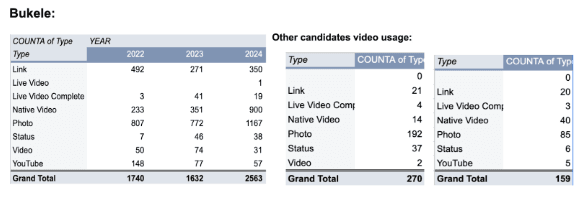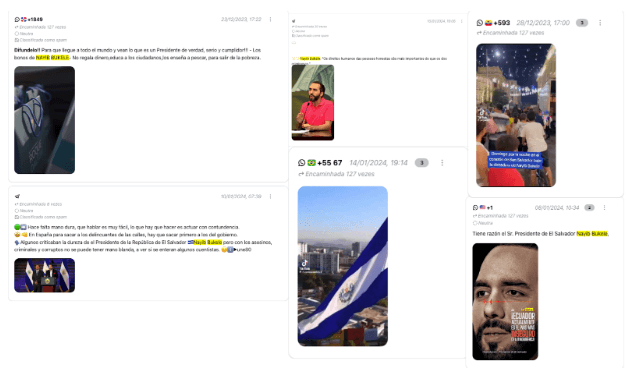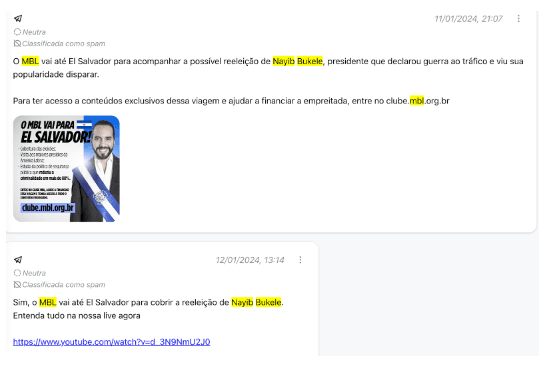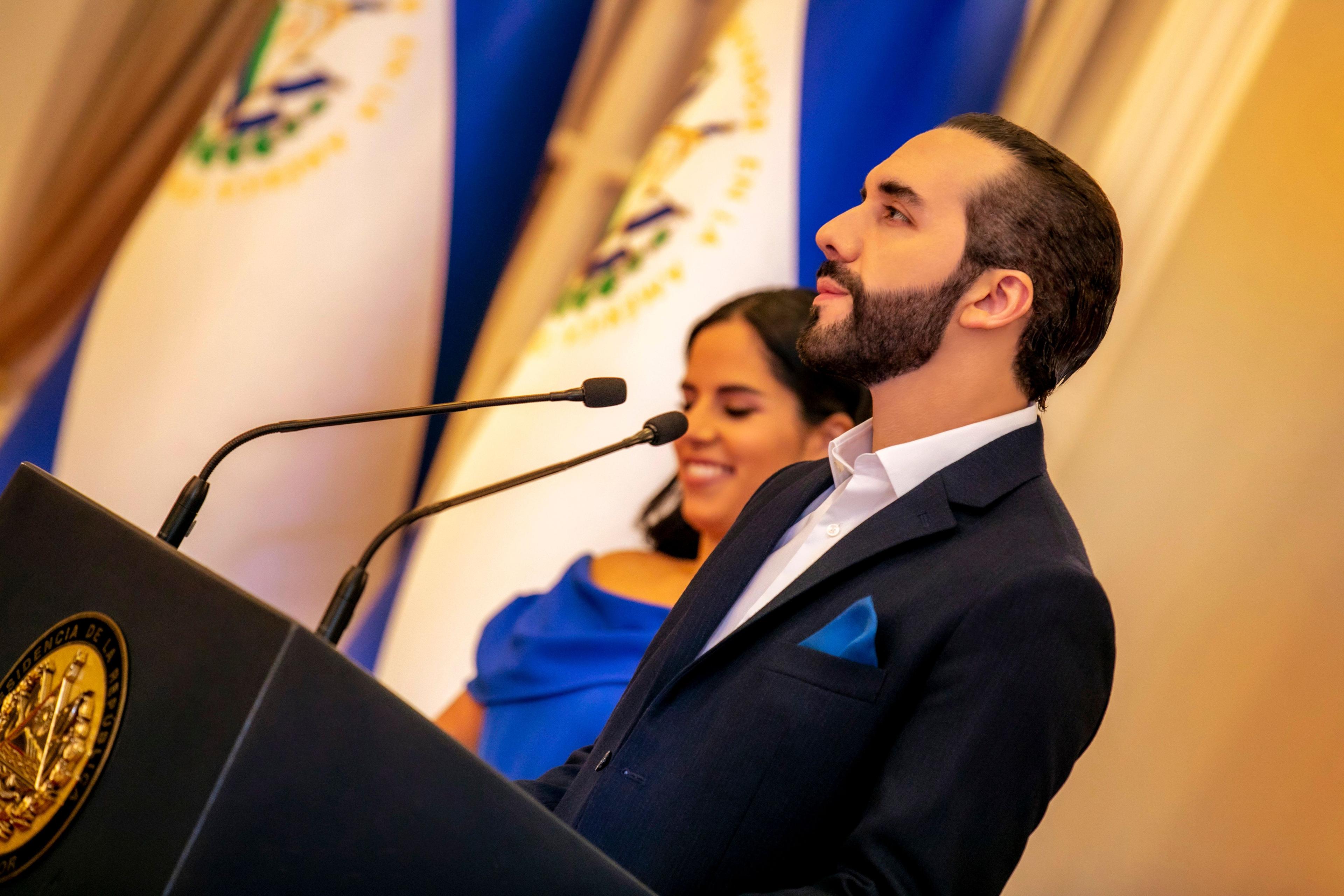The latest electoral polls coming from El Salvador show that president Nayib Bukele, a 42 year-old business man who has raised a controversial iron-fist against crime, will likely be reelected on Sunday, February 4. A look at the way he has used social media since 2019 (when his term in office began), and since the onset of his current campaign, shows that Bukele built and improved on some of the tactics previously used by other far-right leaders in the Americas. His tactical approach to constituent engagement has contributed to him becoming a regional model for successful online engagement, and speaks, in part, to his 2023 lead in popularity among presidents in the region.
Between December 15, 2023, and January 15, 2024, the Digital Democracy Institute of the Americas (DDIA) analyzed posts from more than 3,000 Salvadorans mentioning Bukele on Facebook and WhatsApp – the most popular platform and messaging app, respectively, used in El Salvador.
Data extracted from Meta's CrowdTangle tool shows that, between December 15 and January 15 (the first official month of the campaign), Bukele was ten times more popular (based on rates of engagement) on Facebook than the politician who appears in second place in all recent Salvadoran presidential polls, Manuel Flores. And, in comparison to the candidate in third place, Joel Sanchez, Bukele was 16 times more prevalent.
In just one week, between January 7 and January 14, there was a peak of conversations regarding Bukele. His name appeared on an average of 15 Facebook posts per hour, and this content garnered mostly positive engagement.
Popular Videos
Like Argentina President Javier Milei did while running for office, Bukele's campaign and his supporters are heavily using content in video format to communicate online. While, together, his two opponents had about 70 videos mentioning them on Facebook in the analyzed period (seven were full live broadcasts), Bukele had 1,008 (19 full live broadcasts).

Still between January 7 and January 14, Bukele was the topic of at least 14 hours and 57 minutes of videos posted on Facebook – twice as many as Donald Trump had in the same week while campaigning around the Iowa Caucus.
In those videos, Bukele was usually depicted as a good-looking, smart and brave man. He was also called a potential inspiration. In comparison to the same period in 2023, the number of native videos (original from Facebook) mentioning Bukele more than doubled in 2024, jumping from 351 to 900 publications in this format.
Recordings reviewed by DDIA mainly consisted of high-quality, evergreen files. These are pieces of content that can be (and have been) distributed on several platforms. In early December, DDIA looked at, for example, how videos originally posted on TikTok in mid-November, during the opening of the new Salvadoran National Library, were repurposed and resurfaced on Latino public WhatsApp groups on November 30, when the Salvadoran Justice authorized Bukele to run for reelection.
Different Tone
Like Trump and Bolsonaro, Bukele relies on the support of "patriots" and "good citizens" to push his anti-crime agenda. In online posts analyzed by DDIA, these expressions often pop up in the context of pro-Bukele content.
Bukele's posts mostly do not promote hate or social division. They commonly call for union and public strength against one common evil: crime.
This may help explain how a man governing a country of 6 million people has 7 million followers on Tiktok, and why Facebook pages administered from 29 countries mentioned him at least once during the research week.
Powerful on WhatsApp and Telegram
Data extracted from Palver, a social listening tool that offers DDIA insights about what happens in 600+ WhatsApp public groups and Telegram channels, shows that, from December 15 to January 15, Bukele was a topic of conversation in at least 85 digital spaces. In total, those communications have reached at least 437,884 people.
Videos are also prevalent in conversations about Bukele in these two messaging apps. Eight of the ten most-shared posts on the 85 WhatsApp and Telegram channels studied by DDIA comprised videos depicting Bukele in a positive light, or with a positive sentiment. In these spaces, the president-candidate received solid support for his more heavy-handed, zero tolerance policies against crime, and questions regarding potential human rights violations were rapidly dismissed.

Among WhatsApp groups that include Ecuadorians, conversations often refer to the idea that the Salvadoran presidential candidate could serve as an inspiration for President Daniel Noboa, who recently started his own war against crime. Ecuadorians seem to see Bukele's tough hand against criminals and support it.
Among WhatsApp groups with Brazilians users, DDIA also found publications reporting clear connections between Bukele and Brazilian politicians. Mentions of Partido Liberal (PL), Bolsonaro's party, going to El Salvador this weekend to follow Bukele's electoral performance from up close can be easily found. These messages usually cheer for Brazilian leaders learning from Bukele's political experience.

